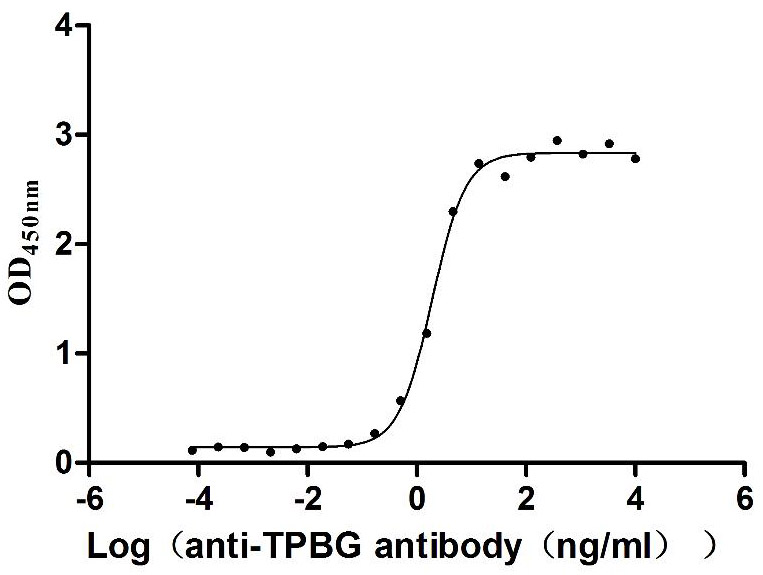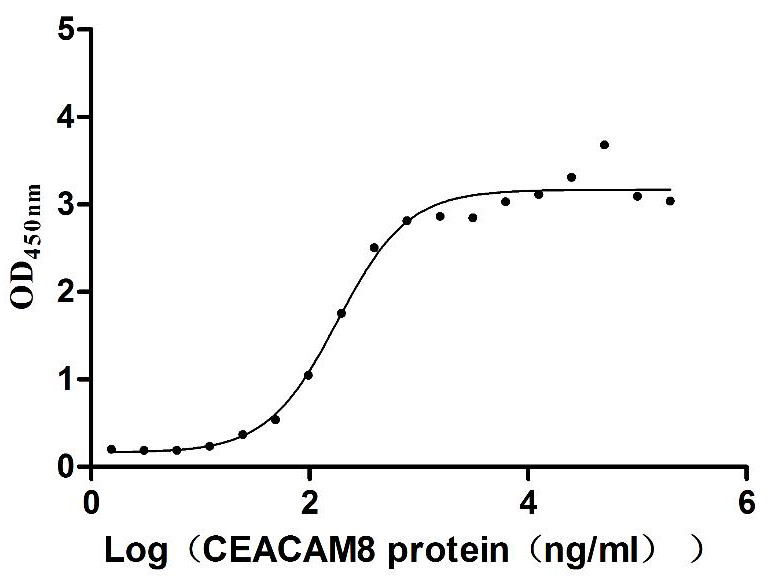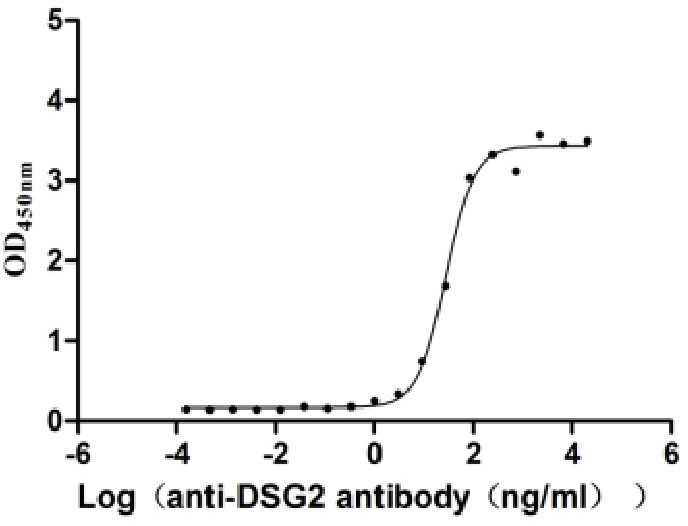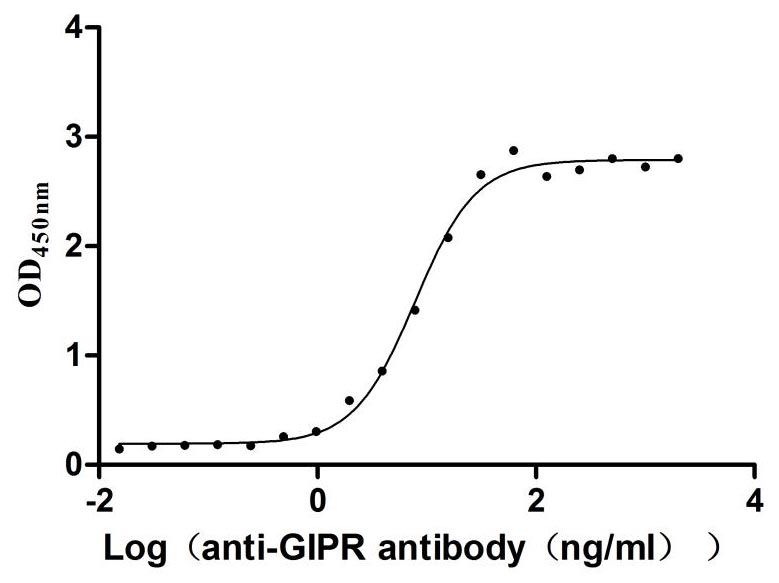Recombinant Mouse Angiopoietin-related protein 4 (Angptl4)
In Stock-
中文名称:Recombinant Mouse Angiopoietin-related protein 4(Angptl4)
-
货号:CSB-EP4186MO
-
规格:¥1836
-
图片:
-
其他:
产品详情
-
纯度:Greater than 90% as determined by SDS-PAGE.
-
生物活性:Not Test
-
基因名:
-
Uniprot No.:
-
别名:(425O18-1)(Angiopoietin-like protein 4)(Fasting-induced adipose factor)(Hepatic fibrinogen/angiopoietin-related protein)(HFARP)(Secreted protein Bk89)
-
种属:Mus musculus (Mouse)
-
蛋白长度:Full Length of Mature Protein
-
来源:E.coli
-
分子量:44.4 kDa
-
表达区域:24-410aa
-
氨基酸序列QGRPAQPEPPRFASWDEMNLLAHGLLQLGHGLREHVERTRGQLGALERRMAACGNACQGPKGKDAPFKDSEDRVPEGQTPETLQSLQTQLKAQNSKIQQLFQKVAQQQRYLSKQNLRIQNLQSQIDLLAPTHLDNGVDKTSRGKRLPKMTQLIGLTPNATHLHRPPRDCQELFQEGERHSGLFQIQPLGSPPFLVNCEMTSDGGWTVIQRRLNGSVDFNQSWEAYKDGFGDPQGEFWLGLEKMHSITGNRGSQLAVQLQDWDGNAKLLQFPIHLGGEDTAYSLQLTEPTANELGATNVSPNGLSLPFSTWDQDHDLRGDLNCAKSLSGGWWFGTCSHSNLNGQYFHSIPRQRQERKKGIFWKTWKGRYYPLQATTLLIQPMEATAAS
Note: The complete sequence including tag sequence, target protein sequence and linker sequence could be provided upon request. -
蛋白标签:C-terminal 6xHis-tagged
-
产品提供形式:Liquid or Lyophilized powder
Note: We will preferentially ship the format that we have in stock, however, if you have any special requirement for the format, please remark your requirement when placing the order, we will prepare according to your demand. -
缓冲液:If the delivery form is liquid, the default storage buffer is Tris/PBS-based buffer, 5%-50% glycerol. If the delivery form is lyophilized powder, the buffer before lyophilization is Tris/PBS-based buffer, 6% Trehalose.
-
复溶:We recommend that this vial be briefly centrifuged prior to opening to bring the contents to the bottom. Please reconstitute protein in deionized sterile water to a concentration of 0.1-1.0 mg/mL.We recommend to add 5-50% of glycerol (final concentration) and aliquot for long-term storage at -20℃/-80℃. Our default final concentration of glycerol is 50%. Customers could use it as reference.
-
储存条件:Store at -20°C/-80°C upon receipt, aliquoting is necessary for mutiple use. Avoid repeated freeze-thaw cycles.
-
保质期:The shelf life is related to many factors, storage state, buffer ingredients, storage temperature and the stability of the protein itself.
Generally, the shelf life of liquid form is 6 months at -20°C/-80°C. The shelf life of lyophilized form is 12 months at -20°C/-80°C. -
货期:3-7 business days
-
注意事项:Repeated freezing and thawing is not recommended. Store working aliquots at 4℃ for up to one week.
-
Datasheet & COA:Please contact us to get it.
相关产品
靶点详情
-
功能:Mediates inactivation of the lipoprotein lipase LPL, and thereby plays a role in the regulation of triglyceride clearance from the blood serum and in lipid metabolism. May also play a role in regulating glucose homeostasis and insulin sensitivity. Inhibits proliferation, migration, and tubule formation of endothelial cells and reduces vascular leakage. Upon heterologous expression, inhibits the adhesion of endothelial cell to the extracellular matrix (ECM), and inhibits the reorganization of the actin cytoskeleton, formation of actin stress fibers and focal adhesions in endothelial cells that have adhered to ANGPTL4-containing ECM (in vitro). Depending on context, may modulate tumor-related angiogenesis (Probable).; Mediates inactivation of the lipoprotein lipase LPL, and thereby plays an important role in the regulation of triglyceride clearance from the blood serum and in lipid metabolism. Has higher activity in LPL inactivation than the uncleaved protein.
-
基因功能参考文献:
- miR-134 accelerates atherogenesis by promoting lipid accumulation and proinflammatory cytokine secretion via the ANGPTL4/LPL pathway PMID: 28867683
- Functional studies in Angptl4-deficient mice confirm improved insulin sensitivity and glucose homeostasis. PMID: 29899519
- Data show that angiopoietin-like protein 4 (ANGPTL4)deficiency in mice knockout (ANGPTL4(-/-)) exacerbated colonic inflammation induced by dextran sulfate sodium (DSS) or stearic acid. PMID: 28287161
- Angptl4 is induced early in fasting to divert uptake of fatty acids and triglycerides away from adipose tissues. PMID: 28752045
- haematopoietic ANGPTL4 deficiency increases atherogenesis through regulating myeloid progenitor cell expansion and differentiation, foam cell formation and vascular inflammation. PMID: 27460411
- Following ANGPTL4 downregulation, the proliferation and invasion abilities of gastric cancer (GC)cell lines were suppressed as determined by MTT and Transwell assays, and cell apoptosis level and sensitivity to cisplatin were increased as determined by flow cytometry and MTT assay. In conclusion, these findings suggest that ANGPTL4 may be a new potential therapeutic target for GC PMID: 29436683
- The influence of H2O2 on ANGPTL4 provided new insight into the mechanism of atherosclerosis. PMID: 28849063
- The reduction of plasma triglyceride levels in Angptl4(-/-) mice and increase following Angptl4 overexpression suggest that changes in plasma triglyceride metabolism do not regulate alpha-cells in the pancreas. Our findings corroborate recent data showing that increased plasma amino acids and their transport into alpha-cells link glucagon receptor blockage to alpha-cell hyperplasia PMID: 28143927
- study demonstrates the key role of Angptl4 in glucocorticoid-augmented hepatic ceramide production that induces whole-body insulin resistance. PMID: 28743803
- 1) ANGPTL4 is not involved in the triglyceride-lowering effect ofbile acids ; 2) ANGPTL4 promotes bile acids absorption during taurocholic acid supplementation via a mechanism dependent on the gut microbiota. PMID: 28733267
- physiological changes in adipose tissue ANGPTL4 expression during fasting and cold resulted in inverse changes in the amount of mature-glycosylated LPL in wild-type mice, but not Angptl4(-/-) mice. We conclude that ANGPTL4 promotes loss of intracellular LPL by stimulating LPL degradation after LPL processing in the endoplasmic reticulum (ER). PMID: 27034464
- Angptl4-deficient mice show impaired insulin secretion and dysmorphic pancreatic islets. PMID: 28188788
- Angptl4 induces obesity-associated metabolic disorders. The present study suggested that Angptl4 promotes liver steatosis and lipolysis, in addition to impairing liver function; while Angptl4 improves glucose tolerance and insulin resistance, in addition to causing the downregulation of various insulin signaling pathway-associated genes. PMID: 27573470
- ANGPTL4 is part of a shuttling mechanism that directs fatty acids derived from circulating triglyceride-rich lipoproteins to brown adipose tissue during cold. PMID: 26476336
- these results suggest that IL-1beta increases Angptl4 expression through a mechanism dependent on the JNK-MAPK signaling pathway in MC3T3-E1 cells. PMID: 26069075
- glucagon receptor antagonist improves glycemia in diet-induced obese angptl4 knockout mice without increasing glucagon levels or alpha-cell proliferation, underscoring the importance of this protein. PMID: 26621734
- This study showed that phloridzin improved plasma lipoprotein lipase activity via a decrease of ANGPTL4 mRNA expression and an increase of AMP-activated protein kinase phosphorylation. PMID: 24932810
- Letter: Angiopoietin-like 4 is induced during sebocyte differentiation and regulates sebaceous lipogenesis in vitro but is dispensable for sebaceous gland function in vivo. PMID: 24815769
- GR and FoxO1 are required for Angptl4 transcription activation, and that FoxO1 negatively mediates the suppressive effect of insulin PMID: 24565756
- ANGPTL4 is a genetically and epigenetically inactivated secreted tumor suppressor that inhibits tumor angiogenesis. PMID: 23686315
- inactivation of LPL by Angptl4 appears to occur after both proteins have traveled along the secretory pathway and arrived at the cell surface. PMID: 24220340
- Angptl4 is necessary for rapid modulation of lipoprotein lipase activity in adipose tissue. PMID: 23176178
- Depletion of adipose angiopoietin-like 4 abolishes intermittent hypoxia-induced dyslipidemia and atherosclerosis in mice, and is regulated by hypoxia-inducible factor-1. PMID: 23328524
- Angptl4 suppresses foam cell formation to reduce atherosclerosis development. PMID: 23640487
- Angptls would be useful in instances where there is a need to maintain HSCs ex vivo, such as during transduction for gene therapy applications PMID: 22639947
- Locally expressed Angptl4 might play a role in local uterine/placental lipid metabolism. PMID: 22350948
- The effect of Toll-like Receptor activation on the expression of macrophage ANGPTL4 was studied. PMID: 22538368
- Angptl4 mRNA expression was increased through the elevated free FAs in diabetic mice. PMID: 22068616
- Data showed that PPARbeta/delta regulates epidermal maturation via ANGPTL4-mediated signalling pathway. PMID: 21966511
- ANGPTL4 tunes endothelial cell junction organization and pericyte coverage and controls vascular permeability and angiogenesis, both during development and in pathological conditions. PMID: 21832056
- serum LDL, HDL and TG levels are decreased in LDLR-, Angptl- mice. PMID: 21549101
- the cleavage of ANGPTL4 by these PCs modulates its inhibitory effect on LPL activity. PMID: 21398697
- Angiopoietin-like 4 interacts with integrins beta1 and beta5 to modulate keratinocyte migration. PMID: 20952587
- Angptl4 protects against severe proinflammatory effects of saturated fat by inhibiting fatty acid uptake into mesenteric lymph node macrophages. PMID: 21109191
- Decreased fat storage by Lactobacillus paracasei is associated with increased levels of ANGPTL4. PMID: 20927337
- Valsartan reduced fiaf gene expression in subcutaneous, but not visceral, fat in the ob/ob mouse. PMID: 20472602
- Angptl4-null mice were resistant to diet-induced obesity, indicating obesity-promoting effects of Angptl4 under the condition of fat-enriched diet. PMID: 20798332
- ANGPTL4 interacts with vitronectin and fibronectin in the wound bed, delaying their proteolytic degradation by metalloproteinases. PMID: 20729546
- Stimulation of cardiac Angptl4 gene expression by dietary fatty acids and via PPARbeta/delta is part of a feedback mechanism aimed at protecting the heart against lipid overload and consequently fatty acid-induced oxidative stress. PMID: 20378851
- These studies demonstrate that ANGPTL4 is a positive acute phase protein and the increase in ANGPTL4 could contribute to the hypertriglyceridemia that characteristically occurs during the acute phase response by inhibiting LPL activity. PMID: 20043872
- potent hyperlipidemia-inducing factor in mice and inhibitor of lipoprotein lipase PMID: 12401877
- FIAF may partially exert its function via a truncated form PMID: 15190076
- angiopoietin-like protein 4 has an oligomerization state-dependent hyperlipidemic effect PMID: 15292369
- Induction of Angptl4 in the heart inhibits lipoprotein-derived fatty acid delivery. PMID: 15659544
- Differential regulation of Angptl3 & Angptl4 by sites of expression, nutritional status, & ligands of nuclear receptors may confer unique roles of each in lipoprotein metabolism. Angptl4 expression is activated by ligands of all PPAR. PMID: 15863837
- Angptl4 is a potential angiogenic mediator in arthritis. PMID: 15870027
- Angptl4-deficient mice had hypotriglyceridemia and increased postheparin plasma lipoprotein lipase, with greater effects in fasted state. Deficiecy in both Angptl proteins had additive effect on plasma triglycerides with survival not past 2 months of age. PMID: 16081640
- via physical association with plasma lipoproteins, FIAF acts as a powerful signal from fat and other tissues to prevent fat storage and stimulate fat mobilization PMID: 16272564
- First report of molecular cloning and characterization of ANGPT4in pigs, which will be helpful for a better understanding of the role of ANGPTLs in lipid metabolism. PMID: 16717449
- Hypoxia/ischaemia rapidly increased fiaf mRNA in the injured cortex and hippocampus at 2 and 7 days after hypoxia/ischaemia. PMID: 16837853
显示更多
收起更多
-
亚细胞定位:Secreted. Secreted, extracellular space, extracellular matrix.
-
组织特异性:Detected in liver and kidney. Predominantly expressed in adipose tissue and is strongly up-regulated by fasting in white adipose tissue and liver.
-
数据库链接:
Most popular with customers
-
Recombinant Human Tumor necrosis factor receptor superfamily member 8 (TNFRSF8), partial (Active)
Express system: Mammalian cell
Species: Homo sapiens (Human)
-
Recombinant Human E3 ubiquitin-protein ligase ZNRF3 (ZNRF3), partial (Active)
Express system: Mammalian cell
Species: Homo sapiens (Human)
-
Recombinant Human B-lymphocyte antigen CD20 (MS4A1)-VLPs (Active)
Express system: Mammalian cell
Species: Homo sapiens (Human)
-
Recombinant Human Angiopoietin-2 (ANGPT2) (Active)
Express system: Mammalian cell
Species: Homo sapiens (Human)
-
Recombinant Macaca fascicularis Trophoblast glycoprotein (TPBG), partial (Active)
Express system: Mammalian cell
Species: Macaca fascicularis (Crab-eating macaque) (Cynomolgus monkey)
-
Recombinant Human Carcinoembryonic antigen-related cell adhesion molecule 6 (CEACAM6) (Active)
Express system: Mammalian cell
Species: Homo sapiens (Human)
-
Recombinant Human Desmoglein-2 (DSG2), partial (Active)
Express system: Mammalian cell
Species: Homo sapiens (Human)
-
Recombinant Rat Gastric inhibitory polypeptide receptor (Gipr), partial (Active)
Express system: Mammalian cell
Species: Rattus norvegicus (Rat)



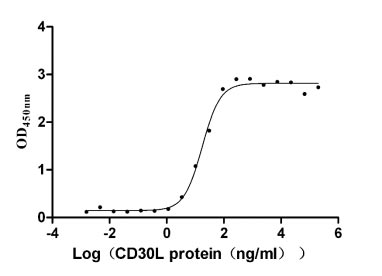
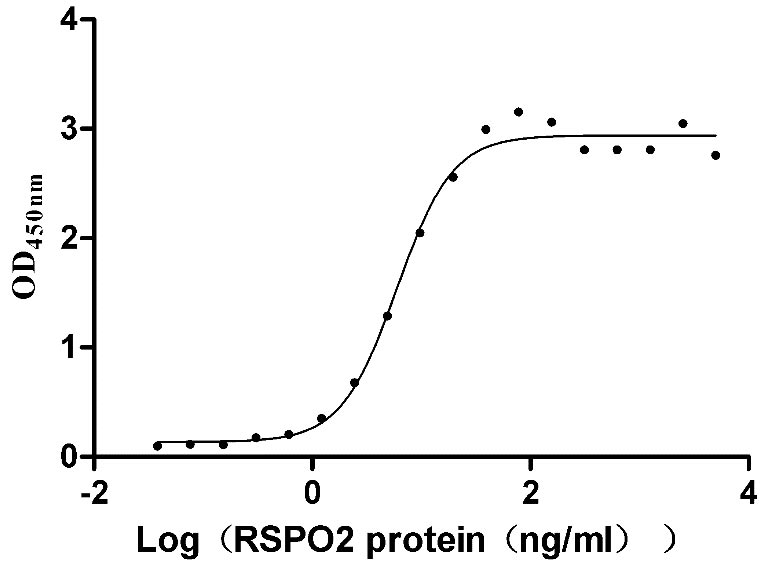
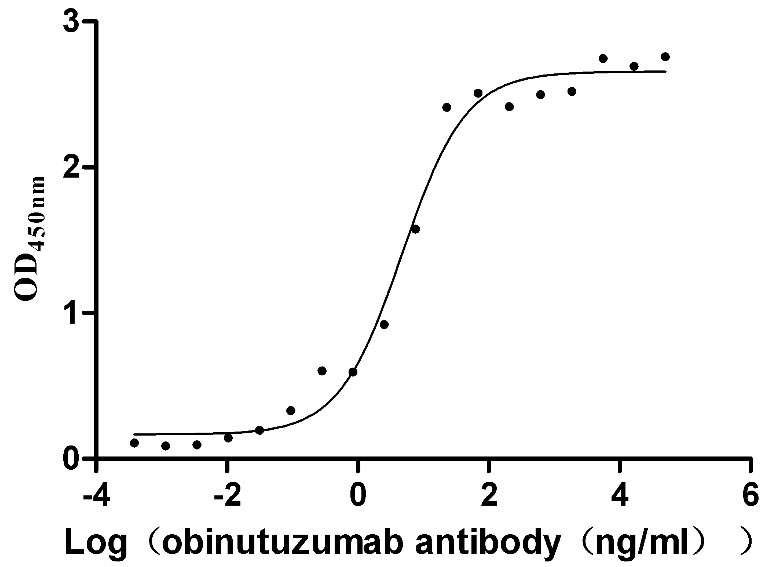
-AC1.jpg)
